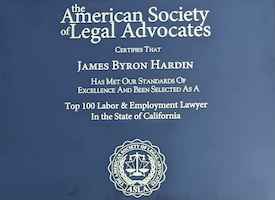Do Arbitration Agreements Apply to Future Employment?
Arbitration agreements require parties to resolve a dispute through arbitration rather than filing a lawsuit. When a person begins their employment with a new employer, they often must sign an agreement to arbitrate any disputes arising from their employment. Many arbitration agreements allow the employer to choose the arbitrator, which may disadvantage the employee. Typically, arbitration agreements only cover a single period of employment with a company. A recent California Court of Appeals decision held that an arbitration agreement did not apply to an employee’s subsequent position at a business affiliated with the original employer.
The Facts
According to the facts discussed in the opinion, the employee began working at Kat Von D’s Wonderland art gallery. In 2014, shortly after beginning her new position, the employee signed an agreement with the company to arbitrate all disputes related to her employment. A few months later, the gallery closed, so the employee sought work elsewhere. In 2017, Kat Von D hired the employee to work at her new business, a tattoo parlor. She did not sign a new arbitration agreement at that time. Two years after she was terminated, the employee filed a lawsuit alleging retaliation and other claims related to her employment at the tattoo business. The employer filed a motion to compel arbitration based on the previous agreement the employee had signed. The trial court denied the employer’s motion, reasoning that the agreement only applied to the employee’s position with Wonderland in 2014. The employer appealed.
The Court’s Decision on Appeal
On appeal, the employer argued that the arbitration agreement applied to the employee’s employment with the tattoo business. It argued that the agreement had no expiration date, expressly applied to “future disputes,” and defined “the Company” to include entities affiliated with Wonderland, including the tattoo parlor. The appeals court rejected these arguments. As the court explained, ambiguities about the scope of an arbitration must be resolved in favor of arbitration. However, the court cannot force a party to arbitrate if they never agreed to do so. Here, the appeals court held that the previous agreement did not cover the employee’s position with the tattoo parlor. While the agreement did not contain an expiration date, it solely referred to the employee’s period of employment with Wonderland.
Second, relying on general principles of California contract law, the court found the meaning of “employee’s employment. . .with Company” to refer to a single period of employment with Wonderland and not the tattoo parlor or any other affiliates. Additionally, the court interpreted “future disputes” to be limited to future disagreements arising from the employee’s employment with Wonderland. Finally, the court cited several cases to demonstrate that its reading of the agreement was consistent with state and federal contract law governing arbitration agreements. Therefore, the appeals court affirmed the trial’s court denial of the employer’s motion to compel arbitration.
Do You Have Questions for a Dedicated Employment Lawyer in California?
Agreements to arbitrate can interfere with employees’ ability to recover compensation for acts of discrimination, harassment, and retaliation. If you are seeking to bring a lawsuit against your current or former employer, contact the California employment lawyers at Hardin Law Group for assistance.





















